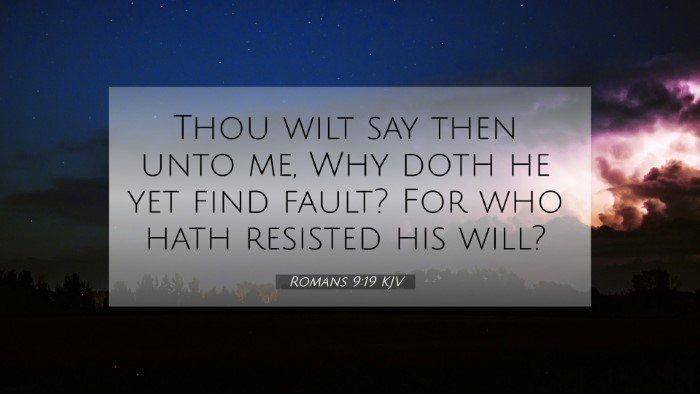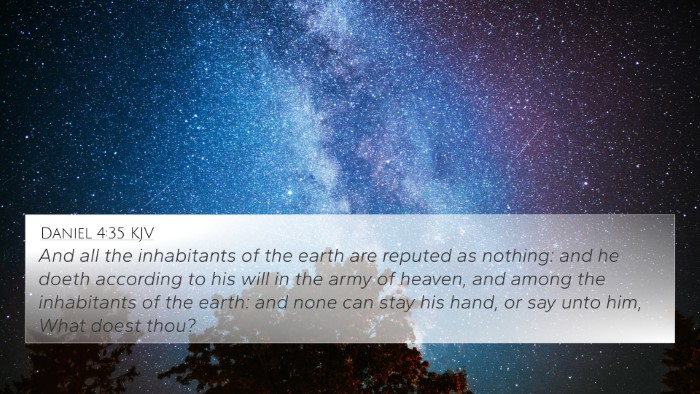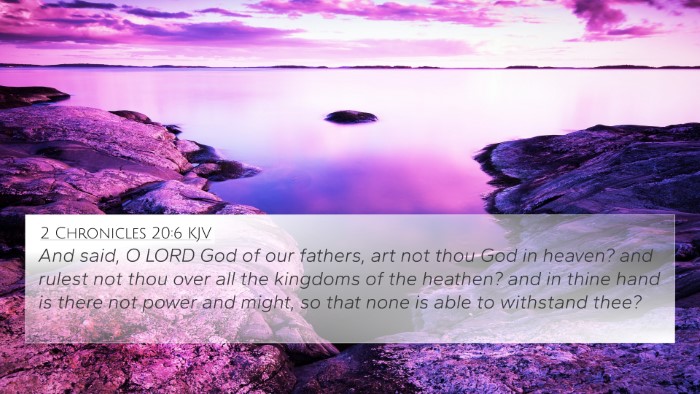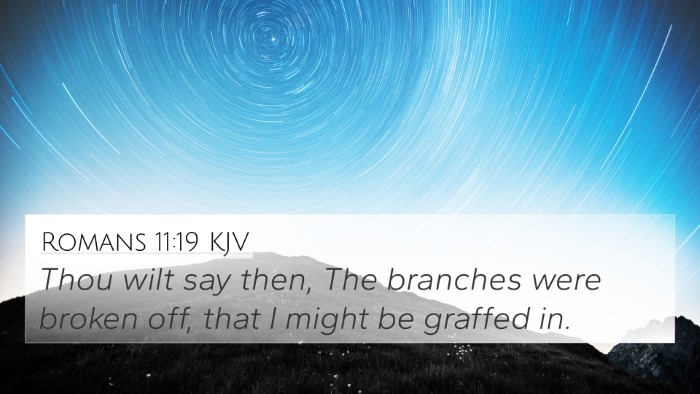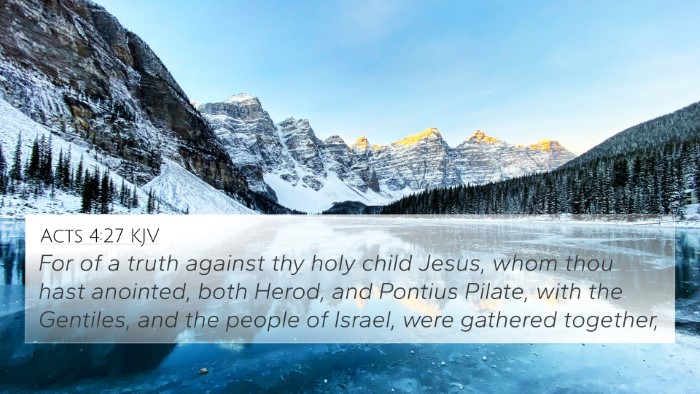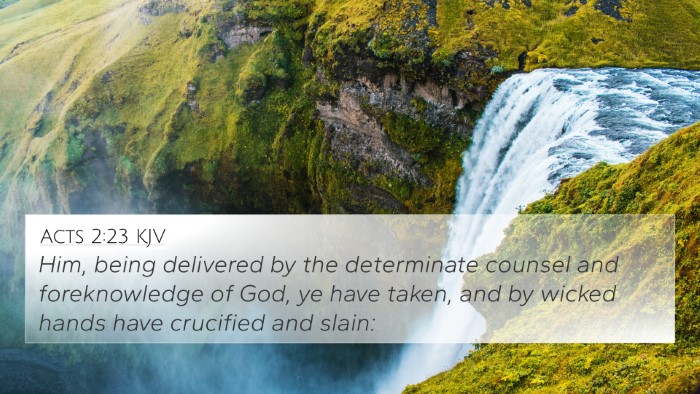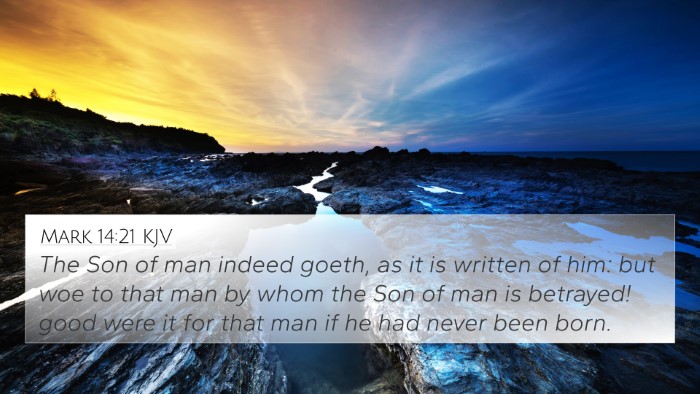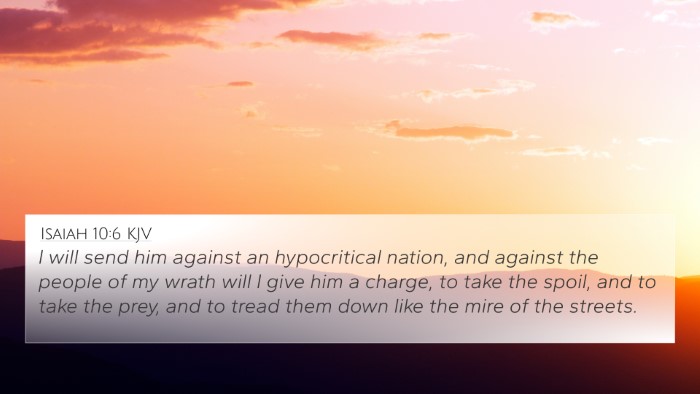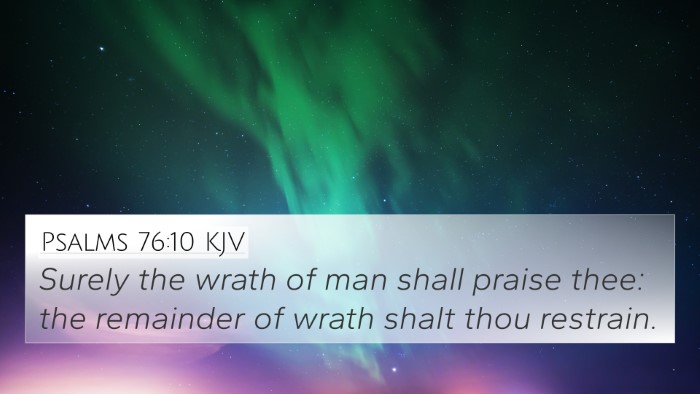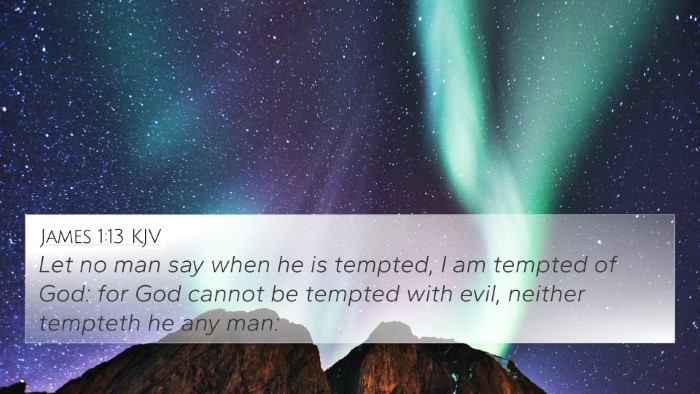Understanding Romans 9:19
Romans 9:19 states, "You will say to me then, ‘Why does he still find fault? For who can resist his will?’" This verse highlights a significant theological dilemma regarding God's sovereignty and human accountability. Below is a summary of insights derived from public domain commentaries, synthesizing the thoughts of Matthew Henry, Albert Barnes, and Adam Clarke.
Verse Context
Romans chapter 9 delves into the themes of divine sovereignty, election, and the complexities of God's justice in relation to Israel and the Gentiles. Understanding this verse requires looking at its broader context in which the Apostle Paul addresses questions about God's choices and the nature of grace.
Commentary Insights
Matthew Henry's Commentary
According to Matthew Henry, this verse underscores the tension between human perception of divine justice and the actual workings of God's will. Henry notes that many may question why God appears to favor some over others, but he emphasizes that God, as the Creator, has the absolute right to exercise His will. Henry articulates that this question arises from a misunderstanding of God's purpose and the nature of His mercy.
Albert Barnes' Commentary
Albert Barnes provides a detailed exploration of the rhetorical question posed in Romans 9:19. He points out that this verse reflects human resistance to the notion of an all-sovereign God who shapes destinies. Barnes argues that the inquiry reflects a common concern regarding free will and predestination, urging readers to recognize that understanding God's will is beyond human comprehension. He suggests that while the question may seem valid, it ultimately challenges God's authority and sovereignty.
Adam Clarke's Commentary
Adam Clarke furthers this exploration by addressing the implications of questioning God's judgment. He states that Paul anticipates objections from his readers, particularly regarding the fairness of divine choices. Clarke emphasizes the need for humility in approaching God's decisions, asserting that God's wisdom and justice transcend human logic. He encourages an acceptance of divine mysteries and a recognition of God's ultimate authority over creation.
Theological Implications
Romans 9:19 invites deep theological reflection on the interplay between divine sovereignty and human responsibility. The following points summarize the implications drawn from the combined insights:
- Divine Sovereignty: God is the ultimate authority and has the right to bestow mercy as He wills.
- Human Accountability: Questioning God's judgment reveals a misunderstanding of human limitations.
- The Nature of Faith: Faith is not predicated on understanding all aspects of divine will but on trust in God's goodness.
Bible Verse Cross-References
Understanding Romans 9:19 can be enriched through a series of cross-references that provide deeper insights into its themes. Below are 8 significant Bible verses that relate to the concepts discussed:
- Isaiah 29:16: "Surely your turning of things upside down shall be esteemed as the potter’s clay." - Highlights God's authority over creation.
- Jeremiah 18:6: "O house of Israel, cannot I do with you as this potter? saith the Lord." - Illustrates God's sovereignty as a potter.
- Ephesians 1:11: "In him we have obtained an inheritance, having been predestined according to the purpose of him who works all things according to the counsel of his will." - Connects God's will with predestination.
- Job 9:12: "If he takes away, who can hinder him? Who will say to him, ‘What are you doing?’" - Questions human resistance to God's will.
- Psalms 115:3: "But our God is in the heavens; he does all that he pleases." - Affirms God's absolute freedom and sovereignty.
- Romans 11:33: "Oh, the depth of the riches and wisdom and knowledge of God! How unsearchable are his judgments and how inscrutable his ways!" - Acknowledges the mystery of God's decisions.
- Philippians 2:13: "For it is God who works in you, both to will and to work for his good pleasure." - Emphasizes God's active role in human choices.
- Acts 13:48: "And when the Gentiles heard this, they began rejoicing and glorifying the word of the Lord; and as many as were appointed to eternal life believed." - Illustrates divine appointment in belief.
Further Study and Tools
To engage deeply with the themes found in Romans 9:19, consider exploring the following resources for comprehensive Bible cross-reference materials:
- Bible Concordance: A tool to find words and themes quickly across the scriptures.
- Bible Reference Resources: Various commentaries and study materials that provide context and insight into verses.
- Bible Cross-Reference Guide: A structured guide to linking related scriptures effectively.
- Comprehensive Bible Cross-Reference Materials: Books and online databases that compile verses related to specific themes.
- Cross-reference Bible study methods: Techniques and strategies for interpreting scripture through cross-referencing.
Conclusion
Romans 9:19 serves as a crucial point of reflection on the complexities of God's sovereignty and human understanding. By engaging with this verse and its related scriptures, believers can gain a deeper appreciation for the mysteries of faith and the unfathomable nature of God's will. Encouraging a hearts-and-minds approach, the study of these themes reinforces the importance of trust in the divine plan amidst the questions that arise from human perspectives.


